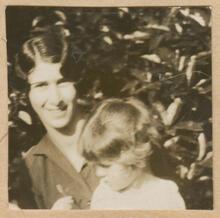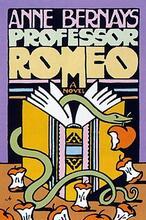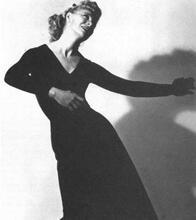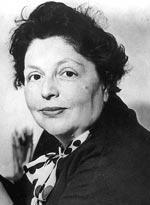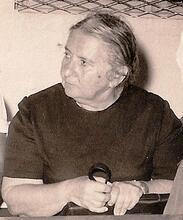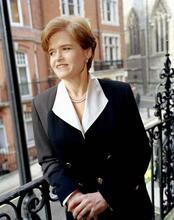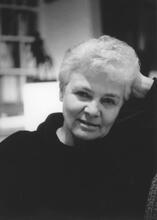Vera Dean
A scholar of international relations, Vera Dean helped shape American foreign policy through her writing. Dean fled the Russian Revolution with her family, settling in America. After schooling, she began working with the Foreign Policy Association, pioneering popular education in international relations. She directed research on foreign policy and edited the Foreign Policy Bulletin, among others. She was invited by the State Department to advise the American delegation at the founding of the United Nations. Her books, Foreign Policy without Fear and Builders of Emerging Nations, became essential reading in the field. Dean’s belief in the importance of popular understanding of international relations brought her to teaching at several esteemed colleges, eventually joining the faculty of New York University’s Graduate School of Public Administration until her retirement.
In the preface to her book Builders of Emerging Nations (1961), Vera Dean poses the question, “What makes a leader?” While the book goes on to discuss the important qualities necessary to be a leader in the political arena, the story of Vera Dean’s life is a testament to her own leadership abilities. She helped shape American foreign policy and opinion on international relations, as both an educator and a writer.
Early life in Russia
She was born in St. Petersburg, Russia, on March 29, 1903, the eldest of three children. Her father, Alexander Micheles, was of German Jewish ancestry, while her mother, Nadine (Kadisch) Micheles, had been born in Russia to Polish and German Jews who had been baptized in the Russian Orthodox church. Vera’s mother was educated in England and spent her time translating English novels into Russian. Her father spent eight years in the United States, sometimes working as a reporter for several Jewish newspapers in New York City. His connection to the United States would later have a great impact on his daughter’s life.
Vera was tutored in several languages and became fluent in seven, including Russian, English, German, and French. Unfortunately, her education was hindered after 1917. During the Revolution in Russia, their connections with American companies forced the Micheles family to flee to Finland. They eventually made their way to London in 1919. From there, Alexander Micheles sent Vera to the United States, where she lived in Boston under the care of a guardian.
Education in America
In America, Vera attended business school and worked as a stenographer. Wishing to pursue a higher education, she enrolled at Radcliffe College in 1921. She graduated Phi Beta Kappa in 1925. After receiving a Carnegie Endowment fellowship, she attended Yale University, where she earned an M.A. in international law in 1926. She then returned to Radcliffe, and in 1928 obtained a doctorate in the new and growing field of international law and relations. That same year, she became an American citizen.
Her career with the Foreign Policy Association began in 1928. It was here she pioneered the field of popular education in international relations.
Dean’s influence on foreign policy
In August 1929, Vera Michaels married William Johnson Dean, a New York attorney. When William Dean died in 1936, leaving her with two small children, Elinor and William, she immersed herself in her work. She directed research on foreign policy and edited several publications, including the bimonthly Foreign Policy Bulletin. During World War II, she denounced American isolationism and advocated collective security as a means of establishing world peace. Her influence was so great that the State Department invited her to advise the American delegation at the founding of the United Nations in 1945. She also worked as UN correspondent to India.
Dean published numerous books about international politics, including Foreign Policy Without Fear (1953) and Builders of Emerging Nations (1961). Her books ranged in theme from the importance of American integrity to politics in non-Western nations. She consistently emphasized the importance of America’s influence as a world power, and fought to erase the stigma placed on the Soviet Union by Americans during the Cold War.
Dean’s need to create awareness of international relations led her to adopt another role, that of educator. She began teaching in 1946 at Barnard College. She also taught at Harvard from 1947 to 1948 and at Smith College from 1952 to 1954, and she held various teaching positions at colleges throughout the country for short periods of time. At the University of Rochester, she directed the Non-Western Civilization Program from 1954 to 1961. In 1962, she accepted a position at New York University’s Graduate School of Public Administration, where she taught seminars in international administration and political science of underdeveloped areas of the world. She remained a valuable part of the faculty at New York University until 1971.
Vera Dean died in New York City on October 10, 1972, of heart failure and a stroke. Her death marked the close of a full life devoted to the selfless endeavor of creating a more peaceful world.
Micheles, Vera Dean. Builders of Emerging Nations (1961).
NAW modern.
New York University. Archives. Graduate School of Public Administration Bulletin (1962–1963).
Obituary. NYTimes, October 12, 1972, 50:1.

